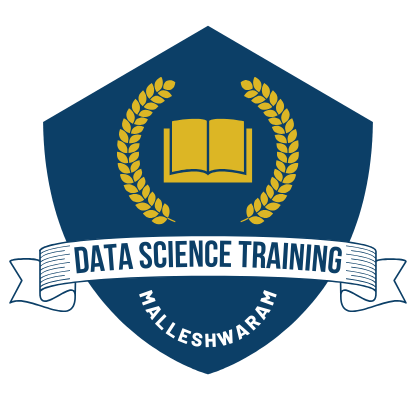Introduction to Data Science
Data science has emerged as a critical field in today’s technology-driven world. It encompasses the extraction of knowledge and insights from structured and unstructured data using scientific methods, algorithms, and systems. Data scientists, the professionals at the forefront of this discipline, play a crucial role in helping organizations make data-driven decisions. The importance of data scientists has grown exponentially, driven by the increasing availability of data and the need for businesses to remain competitive and innovative.
Role and Responsibilities of Data Scientists
Data scientists are often described as the bridge between raw data and actionable insights. Their role involves a combination of statistical analysis, machine learning, data mining, and data visualization. Some of their key responsibilities include:
- Data Collection and Cleaning:
- Gathering data from various sources, ensuring its quality and consistency, and preparing it for analysis.
- Data Analysis and Interpretation:
- Applying statistical methods and analytical techniques to explore data and uncover patterns, trends, and correlations.
- Model Building and Machine Learning:
- Developing predictive models and algorithms using machine learning techniques to forecast future trends and behaviors.
- Data Visualization and Reporting:
- Creating visualizations and dashboards to communicate findings effectively to stakeholders, helping them understand complex data insights.
- Collaboration with Other Teams:
- Working closely with business leaders, engineers, and other stakeholders to define problems, propose solutions, and implement data-driven strategies.
Impact on Various Industries
The influence of data scientists spans across multiple industries, each benefiting uniquely from their expertise.
- Healthcare:
- In healthcare, data scientists are crucial for analyzing patient data to improve diagnostics, personalize treatment plans, and predict disease outbreaks. They also contribute to the development of new drugs and therapies through genomic data analysis.
- Finance:
- The finance industry relies heavily on data scientists for risk management, fraud detection, algorithmic trading, and customer segmentation. By analyzing market trends and consumer behavior, they help financial institutions make informed investment decisions.
- Retail and E-commerce:
- Data scientists help retailers optimize inventory, forecast demand, and personalize customer experiences. They use data to understand shopping patterns, improve supply chain efficiency, and develop targeted marketing campaigns.
- Telecommunications:
- In the telecommunications sector, data scientists analyze network data to enhance service quality, predict customer churn, and optimize pricing strategies.
- Manufacturing:
- The manufacturing industry leverages data science for predictive maintenance, quality control, and supply chain optimization. Data scientists help manufacturers reduce downtime, improve product quality, and increase operational efficiency.
- Entertainment and Media:
- Data scientists in the entertainment industry analyze viewer data to recommend content, optimize scheduling, and enhance user experiences on streaming platforms.
The Rising Demand for Data Scientists
The demand for data scientists has skyrocketed in recent years, driven by the increasing reliance on data across industries. Several factors contribute to this growing demand:
- Data Explosion:
- The exponential growth of data generated by digital platforms, IoT devices, and social media has created a pressing need for professionals who can analyze and interpret this data.
- Digital Transformation:
- Organizations across sectors are undergoing digital transformation, integrating data analytics into their core business strategies. Data scientists are at the heart of these transformations, providing insights that drive innovation and efficiency.
- Competitive Advantage:
- Companies that leverage data effectively gain a competitive edge in the market. Data scientists enable organizations to anticipate trends, understand customer needs, and make informed decisions, leading to better business outcomes.
- Advancements in AI and Machine Learning:
- The advancements in AI and machine learning technologies have expanded the scope of data science, creating new opportunities for data scientists to develop sophisticated models and algorithms.
Skills and Competencies Required
The role of a data scientist requires a diverse skill set that combines technical expertise with domain knowledge.
- Technical Skills:
- Proficiency in programming languages such as Python, R, and SQL is essential. Data scientists should also be skilled in data manipulation, statistical analysis, and machine learning techniques.
- Data Engineering Skills:
- Knowledge of data warehousing, ETL processes, and big data technologies like Hadoop and Spark is crucial for handling large datasets.
- Domain Expertise:
- Understanding the specific industry in which they work enables data scientists to contextualize their analyses and provide relevant insights.
- Soft Skills:
- Strong communication skills are vital for data scientists to present their findings clearly and persuasively to non-technical stakeholders. Problem-solving skills and the ability to think critically are also important.
Top-notch resources to bridge the gap between skills and the job requirement
SkillSlash , Learnbay , NSTI Bangalore , National Portal of India , Coursera, Udemy, Simplilearn, 360DigiTMG
Challenges and Future Prospects
While the role of a data scientist is highly rewarding, it comes with its challenges:
- Data Quality and Privacy:
- Ensuring data quality and managing data privacy concerns are significant challenges, especially with increasing regulatory scrutiny.
- Skill Gap:
- The rapid evolution of technology means that data scientists must continually update their skills to stay relevant. There is also a noticeable skill gap, with a shortage of qualified data scientists in the market.
- Integration with Business Processes:
- Integrating data science into existing business processes can be complex, requiring a clear understanding of both technical and business aspects.
Despite these challenges, the future for data scientists looks promising. As organizations continue to embrace data-driven strategies, the demand for skilled data scientists will only increase. The role will evolve, with data scientists becoming key players in strategic decision-making and innovation.
In conclusion, data scientists are indispensable in the current market. Their ability to transform raw data into valuable insights drives business growth, innovation, and efficiency. As the world becomes increasingly data-centric, the importance of data scientists will continue to rise, making it an exciting and vital career choice in the modern economy.
